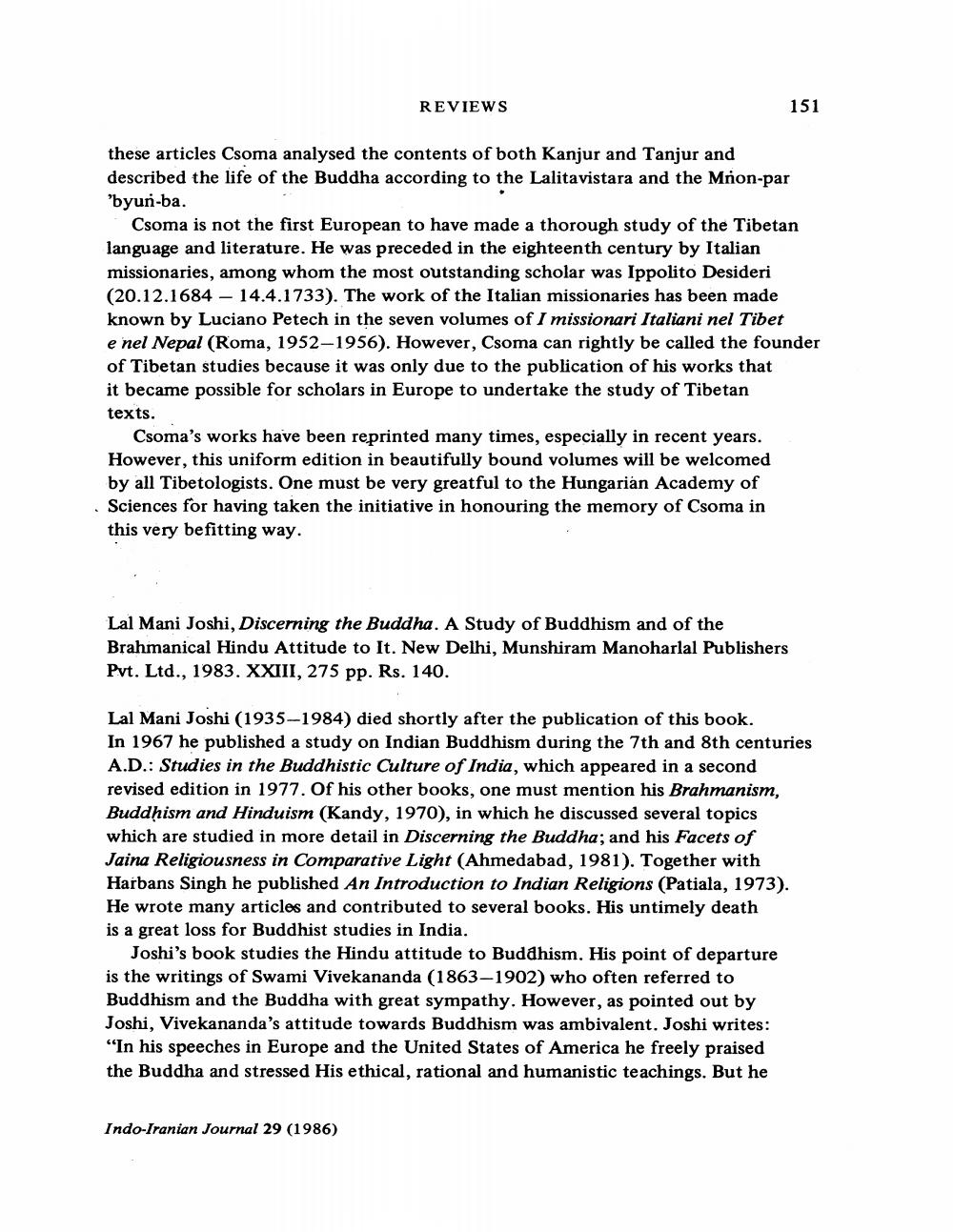Book Title: Reviews Of Diffeent Books Author(s): Publisher: View full book textPage 5
________________ REVIEWS 151 these articles Csoma analysed the contents of both Kanjur and Tanjur and described the life of the Buddha according to the Lalitavistara and the Mron-par byun-ba. Csoma is not the first European to have made a thorough study of the Tibetan language and literature. He was preceded in the eighteenth century by Italian missionaries, among whom the most outstanding scholar was Ippolito Desideri (20.12.1684 - 14.4.1733). The work of the Italian missionaries has been made known by Luciano Petech in the seven volumes of I missionari Italiani nel Tibet e nel Nepal (Roma, 1952-1956). However, Csoma can rightly be called the founder of Tibetan studies because it was only due to the publication of his works that it became possible for scholars in Europe to undertake the study of Tibetan texts. Csoma's works have been reprinted many times, especially in recent years. However, this uniform edition in beautifully bound volumes will be welcomed by all Tibetologists. One must be very greatful to the Hungarian Academy of Sciences for having taken the initiative in honouring the memory of Csoma in this very befitting way. Lal Mani Joshi, Discerning the Buddha. A Study of Buddhism and of the Brahmanical Hindu Attitude to It. New Delhi, Munshiram Manoharlal Publishers Pvt. Ltd., 1983. XXIII, 275 pp. Rs. 140. Lal Mani Joshi (1935-1984) died shortly after the publication of this book. In 1967 he published a study on Indian Buddhism during the 7th and 8th centuries A.D.: Studies in the Buddhistic Culture of India, which appeared in a second revised edition in 1977. Of his other books, one must mention his Brahmanism, Buddhism and Hinduism (Kandy, 1970), in which he discussed several topics which are studied in more detail in Discerning the Buddha; and his Facets of Jaina Religiousness in Comparative Light (Ahmedabad, 1981). Together with Harbans Singh he published An Introduction to Indian Religions (Patiala, 1973). He wrote many articles and contributed to several books. His untimely death is a great loss for Buddhist studies in India. Joshi's book studies the Hindu attitude to Buddhism. His point of departure is the writings of Swami Vivekananda (1863-1902) who often referred to Buddhism and the Buddha with great sympathy. However, as pointed out by Joshi, Vivekananda's attitude towards Buddhism was ambivalent. Joshi writes: "In his speeches in Europe and the United States of America he freely praised the Buddha and stressed His ethical, rational and humanistic teachings. But he Indo-Iranian Journal 29 (1986)Page Navigation
1 ... 3 4 5 6 7 8
